Easy-Care Japanese Garden Plants for Minimal Maintenance
An added advantage of many traditional Japanese garden plants is their low-maintenance nature, making them ideal for gardeners who are looking for minimal hustle. In this article, we explore 9 Japanese garden plants that bring the touch of Japan to your space with ease of care.


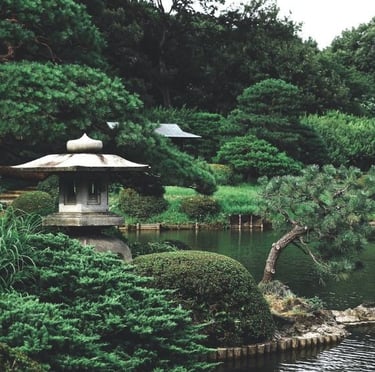



Why These Plants Are Low Maintenance
The key to their low maintenance lies in their natural growth habits and adaptability. These plants typically require minimal pruning, are resistant to pests and diseases, and can thrive in a variety of soil conditions. Many are drought-tolerant once established, reducing the need for frequent watering.
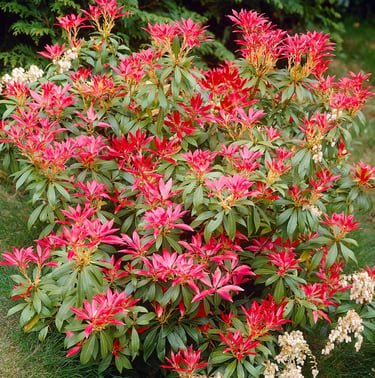

Japanese Pieris, reaching 1-3 m (3-10 ft), thrives in acidic, well-drained soil and partial shade and can be use as a woodland garden plant. It's valued for its evergreen nature and spring flowers. Pieris is disease-resistant and requires little pruning, making it a low-fuss ornamental.
Japanese Pieris


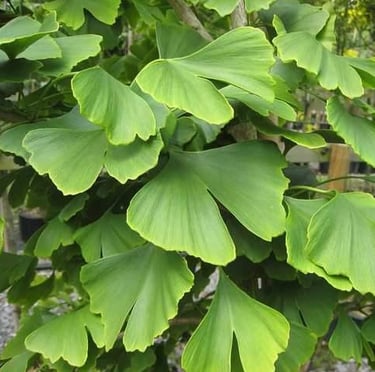

Ginkgo Biloba
Ginkgo Biloba, also known as the Maidenhair Tree, is a Japanese garden plant that grows up to 25-30 m (80-100 ft). It thrives in full sun and adapts well to various soil types. Known for its distinctive fan-shaped leaves, which turn bright yellow in fall, Ginkgo is highly resistant to pests and diseases. It requires minimal pruning and is tolerant of urban pollution.




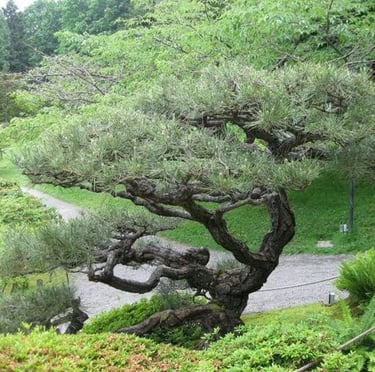

Japanese Black Pine
Japanese Black Pine can reach 9-12 m (30-40 ft) and loves full sun and well-drained soil. This Japanese tree is tolerant of poor soils and salt, making it ideal for coastal gardens. Its natural shape minimizes the need for pruning.




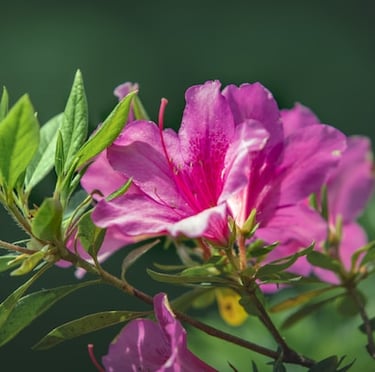

Azalea
Azaleas are great easy-care shrubs that reach 0.5-2.5 m (1.5-8 ft) and thrive in acidic, well-drained soil and partial shade. Their vibrant spring flowers provide nectar for pollinators. Azaleas are effective in filtering airborne pollutants, making them valuable in urban and suburban settings similar to most other plants.




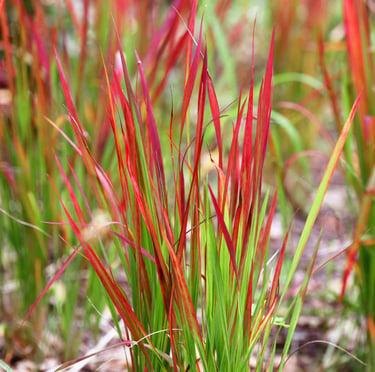

Blood Grass
Blood Grass, reaching up to 40-60 cm (15-24 in), thrives in full sun and well-drained soil. Known for its striking red-tipped blades, it adds vibrant color and texture to the garden. This ornamental grass is drought-tolerant, requires no mowing, and is generally pest-free, making it an ideal low-maintenance option for adding visual interest to garden borders or containers.



Kerria Japonica
This Yellow-flowering ornamental bush reaches about 1-2 m (3-6 ft) and prefers partial shade and moist, well-drained soil. Its unique, pom-pom-like yellow flowers and arching branches add a whimsical touch to your Japanese garden.
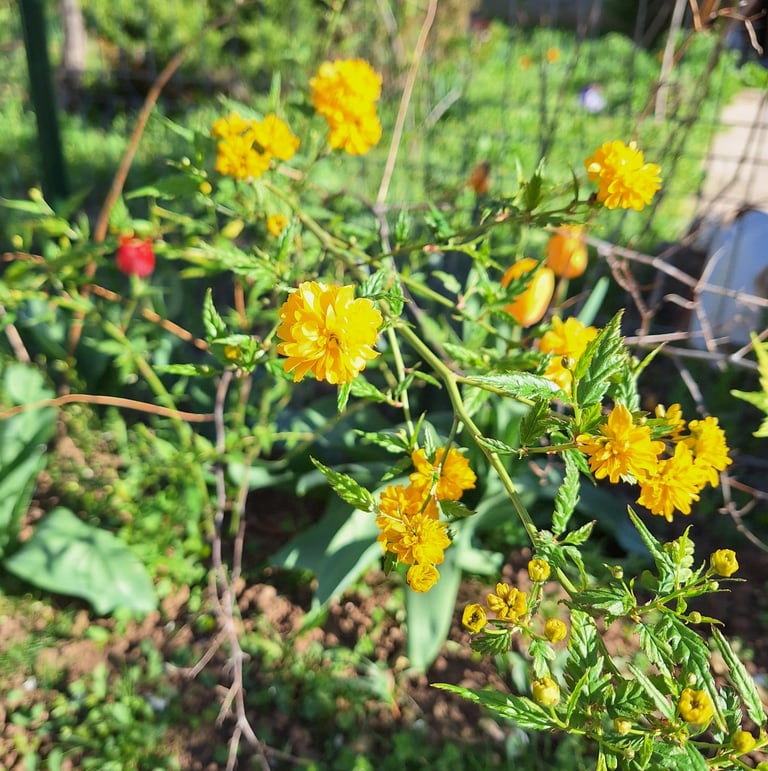





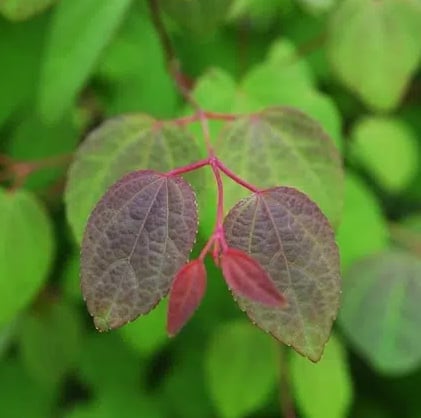

Katsura Tree
Katsura Trees are typical Japanese trees similar to Japanese Black Pines, growing up to 10-15 m (30-50 ft) and prefer full sun to partial shade and moist soil. They are known for their beautiful fall color and heart-shaped leaves. These trees are relatively pest-free and require minimal pruning.



Japanese Marple
Japanese Maple leaves have a similar color to Nandina shrubs, reaching 2-10 m (6-33 ft) and thriving in partial shade and well-drained soil. Their unique foliage offers stunning fall color and provides habitat for birds. These small ornamental trees are perfect for creating a focal point in gardens.
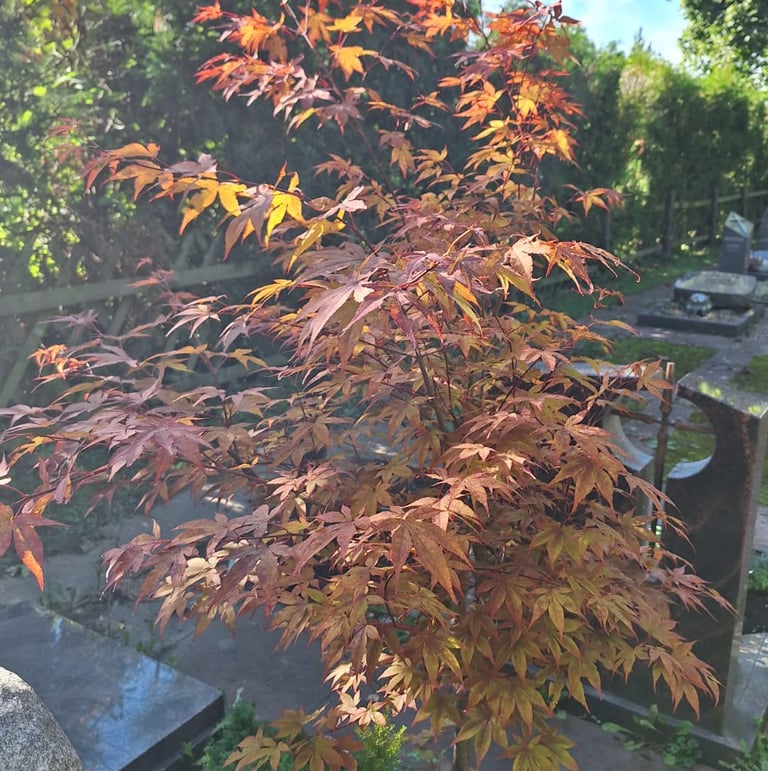





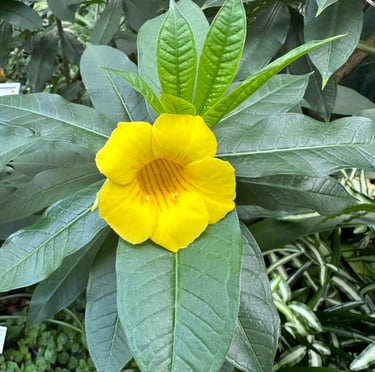

Golden Bell
This flowering bush called Golden Bell, reaches 2-3 m (6-10 ft) and loves full sun and well-drained soil. Its cascading branches with bright yellow Japanese flowers create a stunning display in early spring, making it ideal for fences and trellises.



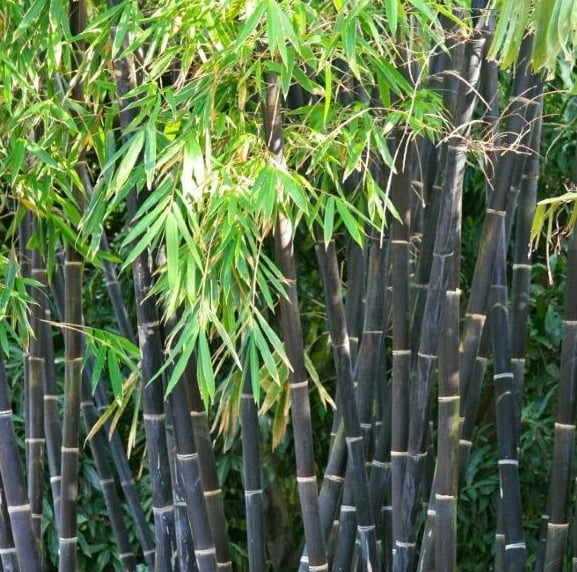

Black Bamboo
Black Bamboo, growing up to 5-8 m (16-26 ft), is renowned for its unique, dark-colored canes that mature from green to a deep black. It prefers full sun to partial shade and well-drained soil. This ornamental Bamboo is perfect for adding a dramatic touch to landscapes and works well as a standalone plant or in grouped plantings.





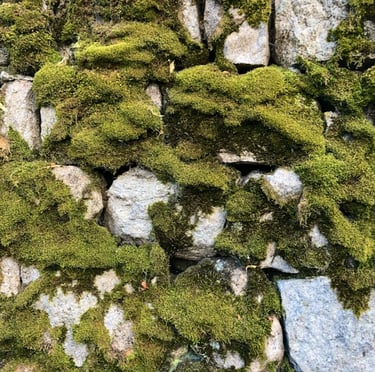

Moss
Moss is also a very typical plant that is often used in Japanese gardens. The ground cover has significant air purifying benefits and mostly grows in wet, shaded environments without any planting or care.



Sources
Nature and Sustainability uses only high-quality sources, including peer-reviewed studies, and other fact-dense and highly trusted sources to support the facts that we use in our articles. Please read our editorial policy to learn more about how we keep our content accurate, reliable, and trustworthy.
Japanese Garden Information: How to Build a Japanese Garden (with Pictures) - wikiHow
Black Bamboo: Black Bamboo: Care and Growing Guide (thespruce.com)
Japanese Marple: Acer palmatum (Japanese Maple, Japanese Maple Cultivars) | North Carolina Extension Gardener Plant Toolbox (ncsu.edu
Kerria Japonica: Kerria japonica (Japanese Kerria, Japanese Rose, Kerria) | North Carolina Extension Gardener Plant Toolbox (ncsu.edu)
Blood Grass: Japanese Blood Grass Plant - How To Grow Japanese Blood Grass | Gardening Know How
Share this article:




Article By:
Calin is in the garden industry for 5 years now and knows a lot about gardening and plants. He is the owner of this website and responsible for most of the content.



